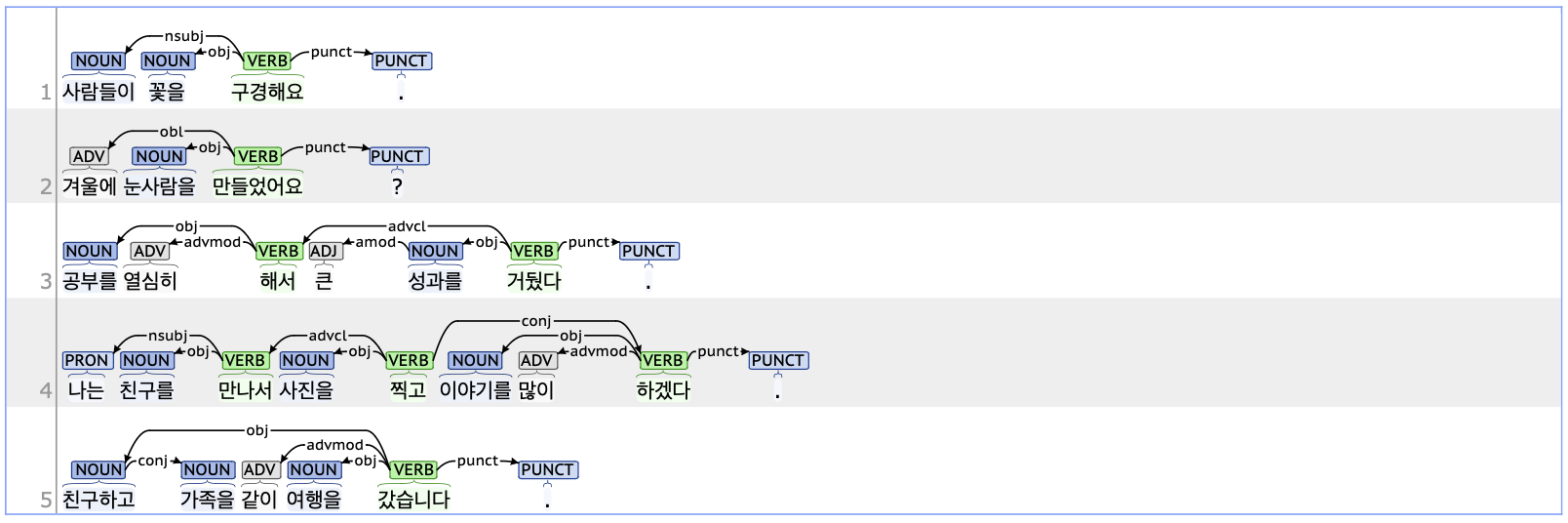obj: Object
Definition
obj refers to the object, which is one of the core arguments in a sentence with a transitive verb. It denotes the noun or noun phrase that serves as the target of the action.
Characteristics
- Korean generally follows an SOV (subject-object-verb) word order.
- The obj tag typically includes the case marker JKO (Postposition_objectival, 목적격 조사), such as ‘을/를.’
-
In sentences composed of multiple clauses with different objects, the role of the word tagged as obj is determined by the predicate it depends on.
- Examples:
- 사람들이 꽃을 구경해요.
- 겨울에 눈사람을 만들었다.
- 공부를 열심히 해서 큰 성과를 거뒀다.
- 친구를 만나서 사진을 찍고 이야기를 많이 하겠다.
Boundary cases and clarifications
Special cases
- Case marker criteria for obj:
- For ungrammatical sentences, since case markers play a crucial role in Korean syntax, the element marked with JKO is tagged as obj even if it does not serve as the logical object.
- 단풍을(*단풍이) 피었습니다.
- 방학 때 가족을(*가족과) 같이 여행을 갔습니다.
- For ungrammatical sentences, since case markers play a crucial role in Korean syntax, the element marked with JKO is tagged as obj even if it does not serve as the logical object.
Examples
